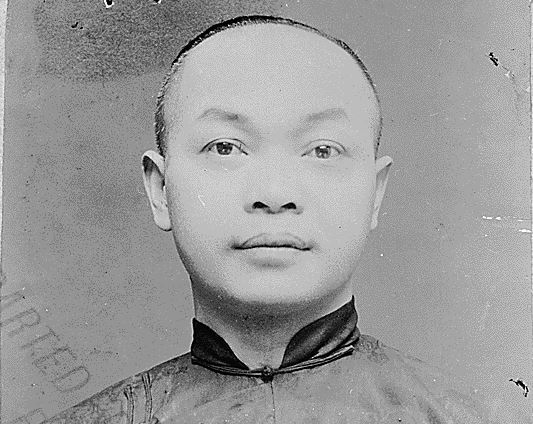Birthright Citizenship Case Invokes Landmark 'United States v Wong Kim Ark' Ruling
By Romen Basu Borsellino | 19 May, 2025
Supreme Court oral arguments are underway for a case related to President Trump’s executive order revoking birthright citizenship. It was the son of Chinese immigrants who first sued the United States to establish that right.
The Supreme Court is currently hearing arguments on a case related to birthright citizenship, the constitutional provision that grants citizenship to anyone born in the United States regardless of whether or not their parents were here legally. While the case is notable for the impact it may have on millions of citizens, it has also shed light on the 1898 Supreme Court ruling that first established the precedent for birthright citizenship: The United States v Wong Kim Ark.
In 1895, 21 year-old Wong Kim Ark, born in San Francisco, was denied re-entry into the United States upon his return from a trip to China. This was thirteen years after Congress had implemented the Chinese Exclusion Act, a racist law that made Chinese citizens in the United States ineligible for US citizenship and put limits on their ability to return if they left the country. Both of Wong’s parents were Chinese citizens.
Wong sued, arguing that since he was born in the US, he is entitled to citizenship regardless of his parents’ status. He cited the Fourteenth Amendment to the US Constitution, which states that “All persons born or naturalized in the United States, and subject to the jurisdiction thereof, are citizens of the United States and of the State wherein they reside.”
The Supreme Court ultimately ruled in Wong’s favor, enshrining citizenship for him and everyone else born here. The ruling also ensured citizenship to millions of others in the 127 years since. In their 6-2 ruling, the Court’s majority stated that the Fourteenth Amendment “in clear words and in manifest intent, includes the children born within the territory of the United States of all other persons, of whatever race or color, domiciled within the United States.”
On Jan 20, 2025, the day that he took off, President Trump signed an executive order abolishing birthright citizenship. The executive order was immediately met in court, where several judges held that an executive order cannot overturn a provision in the Constitution and issued a nationwide injunction against the order.
But the current hearing before the Supreme Court does not necessarily question whether or not Trump’s actions are legal. Rather, it is centered on whether or not those district judges had the power to issue nationwide injunctions. The Trump administration is arguing that district judges do not have authority outside of their own districts. This is to say that the Court’s ruling may not ultimately address whether or not Trump’s executive order is unconstitutional.
That didn’t stop some of the Court’s justices from weighing in on the legality of birthright citizenship. Justice Sotomayor, for example, said that the executive order violated, “by my count, four established Supreme Court precedents.” Justice Kagan pointed out that every lower court that has ruled on the executive order so far has deemed it illegal.
Should the Trump administration ultimately succeed in implementing the executive order, hundreds of thousands would be denied citizenship going forward. The question of whether some current birthright citizens could lose their legal status remains up in the air. Estimates have shown that about 255,000 babies who benefit from birthright citizenship are born every year.
Wong Kim Ark’s own great-grandson has been outspoken against the executive order. “He’s feeding off the American mindset, and it’s not a healthy one,” 74 year-old Norman Wong said. “We can’t build the country together and be against everybody. I think the best thing to do is for Americans to actually be embracing Americans.”
Wong sued, arguing that since he was born in the US, he is entitled to citizenship regardless of his parents’ status.

Wong Kim Ark
Asian American Success Stories
- The 130 Most Inspiring Asian Americans of All Time
- 12 Most Brilliant Asian Americans
- Greatest Asian American War Heroes
- Asian American Digital Pioneers
- New Asian American Imagemakers
- Asian American Innovators
- The 20 Most Inspiring Asian Sports Stars
- 5 Most Daring Asian Americans
- Surprising Superstars
- TV’s Hottest Asians
- 100 Greatest Asian American Entrepreneurs
- Asian American Wonder Women
- Greatest Asian American Rags-to-Riches Stories
- Notable Asian American Professionals

